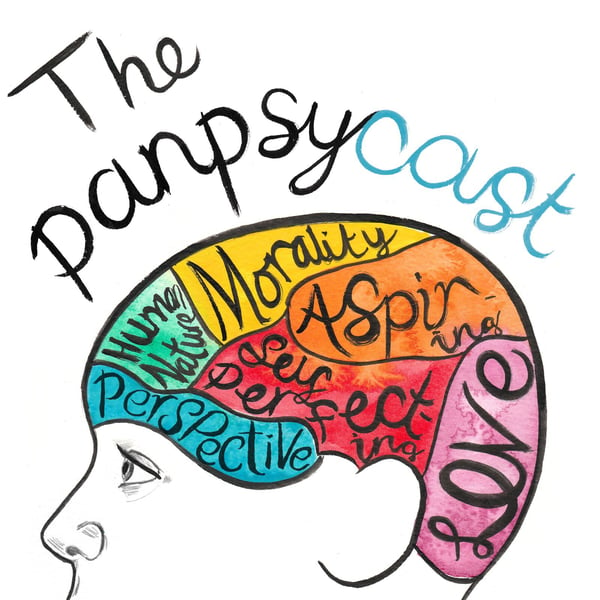Episode 29, Stephen Law and 'The Evil-God Challenge' (Part II)
The Panpsycast Philosophy Podcast
Jack Symes | Andrew Horton, Oliver Marley, and Rose de Castellane
4.8 • 604 Ratings
🗓️ 17 December 2017
⏱️ 58 minutes
🧾️ Download transcript
Summary
This episode is proudly supported by New College of the Humanities. To find out more about the college and their philosophy programmes, please visit www.nchlondon.ac.uk/panpsycast. Everything you could need is on www.thepanpsycast.com! Please tweet us your thoughts at www.twitter.com/thepanpsycast. Dr Stephen Law is a Reader in philosophy at Heythrop College, University of London, and editor of the Royal Institute of Philosophy journal THINK. Amongst many other books, Stephen Law is the author of A Very Short Introduction to Humanism, The War for Children's Minds, The Philosophy Gym, and Believing Bullshit: How Not to Get Sucked into an Intellectual Black Hole. Stephen Law has debated many Christian philosophers, including William Lane Craig, John Lennox and Alvin Plantinga. Our central focus today is Law’s main argument against the existence of God – 'The Evil-God Challenge'. The evil-god challenge can be stated as follows: why should we consider the hypothesis that there exists a good-god, significantly more reasonable than the hypothesis that there exists an evil-god? Part I. The Evil-God Challenge (start of Part I), Part II. Further Analysis and Discussion (start of Part II).
Transcript
Click on a timestamp to play from that location
| 0:00.0 | Part 2. Further analysis and discussion. Okay, so I think we'll start with the first question, as usual. |
| 0:23.3 | This comes from John Paul Stuthridge. |
| 0:27.6 | We've adapted the question here for the purposes of being concise and get accurate or something like this. |
| 0:34.4 | So we apologize if we're putting words into your mouth, John. |
| 0:39.1 | But essentially, we guess he wrote in with an Anselmian great-making argument, |
| 0:44.6 | which can be something like follows. |
| 0:47.3 | God is that which nothing can be conceived. |
| 0:50.3 | It is greater to be maximally good than maximally evil. |
| 0:53.8 | Suppose that God is maximally evil. |
| 0:56.3 | Well, then there's a greater conceivable being than God, namely a being that is maximally good, not maximally evil. |
| 1:03.9 | But this is a contradiction, right? |
| 1:05.7 | So our assumption was false, i.e. that God is maximally evil. |
| 1:10.6 | So if God's not maximally evil, we should accept because the assumption was false, i.e. that God is maximally evil. So if God's not maximally evil, we should accept |
| 1:13.1 | because the assumption was false that God is maximally good. I guess that's the ontological argument |
| 1:19.6 | in favour of a maximally good God. How would you then respond to this argument, Stephen? |
| 1:25.8 | What do you think of it? Right. Well, it's not in the paper. |
| 1:30.4 | I briefly consider ontological arguments and I point out that, you know, some of the most |
| 1:38.0 | obvious examples can be flipped. So, you know, a simple Anselmian sort of argument goes, you know, I can conceive of a |
| 1:48.0 | maximally great god or good god. And given that it's greater to exist in my imagination, it's even |
| 1:57.4 | better for it to exist in, so in my imagination I can conclude that this thing |
| 2:02.0 | really exists and then a mirror version of that would be well I can conceive of the maximally evil being |
| 2:09.0 | and it would be even more evil for that being to exist in reality than merely in my imagination |
... |
Please login to see the full transcript.
Disclaimer: The podcast and artwork embedded on this page are from Jack Symes | Andrew Horton, Oliver Marley, and Rose de Castellane, and are the property of its owner and not affiliated with or endorsed by Tapesearch.
Generated transcripts are the property of Jack Symes | Andrew Horton, Oliver Marley, and Rose de Castellane and are distributed freely under the Fair Use doctrine. Transcripts generated by Tapesearch are not guaranteed to be accurate.
Copyright © Tapesearch 2025.

